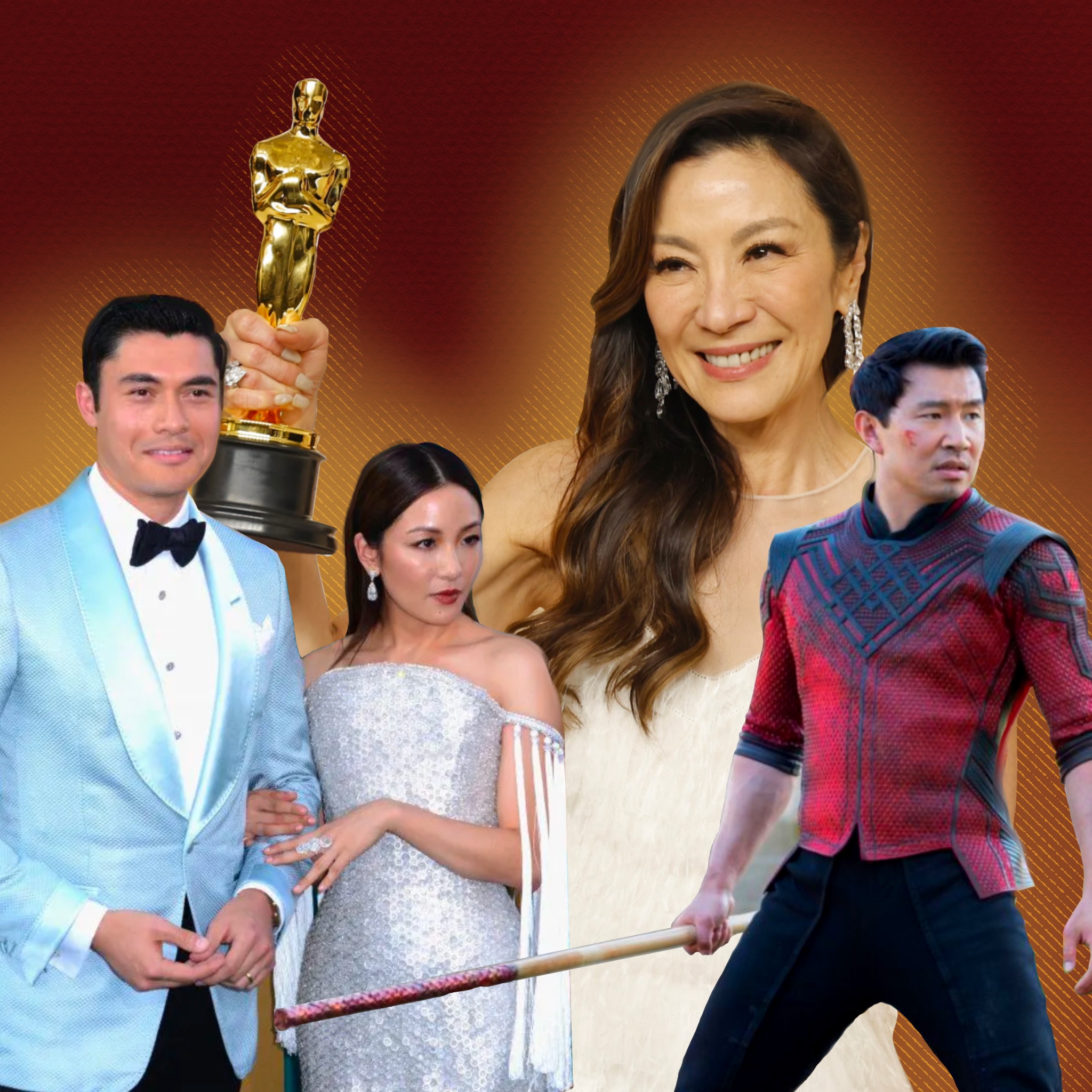
When the news broke that Malaysian actress Michelle Yeoh was the first identifying Asian to be nominated for the Academy Award for Best Actress this year, Communication third-year Kylie Kim felt both excited and slightly disappointed.
“This should have been happening years ago,” Kim said.
While Asian representation in the media has increased over the years, many Asian students in the School of Communication said they shared Kim’s sentiment. NBN spoke to these students about how the changing landscape of representation in the entertainment industry – from the release of Crazy Rich Asians to Shang-Chi and the Legend of the Ten Rings to Everything Everywhere All At Once – has impacted their past, present and future.
Before Crazy Rich Asians
Film scholars often regard Crazy Rich Asians as the turning point for Asian representation in Hollywood because only 1993’s The Joy Luck Club preceded it in featuring an all-Asian cast. Prior to the movie’s release in 2018, Asians made up only 3.1% of top film roles in 2017, according to UCLA’s 2018 Hollywood Diversity Report.
Kim said she struggled to see herself in the acting industry when she was younger because of the underrepresentation of Asians in leading roles.
“It was a lot of like, ‘am I ever gonna get cast in a role like this?’” Kim said.
Communication fourth-year Annie Tsui said she felt the whiteness of the entertainment industry impacted her attitude towards her own cultural identity.
“I remember thinking, ‘I wish I was white’ when I was younger so I could have all these fun adventures that I see all these white people on TV and movies have,” Tsui said.
Asian students said they also felt parental pressure to avoid the entertainment industry because of its lack of diversity. For Communication fourth-year Jared Son, the lack of famous Asians actors in American entertainment in the 2010s caused his parents to be hesitant about supporting his pursuit of a theater major.
“They had a lot of anxiety about whether [theater’s] something you can do as a career,” Son said.
Dr. Xing Lu, a Professor Emeritus of Global Asian Studies at DePaul University, said the Asian community’s past silence on visibility issues contributed towards slow progress for the representation of younger generations of Asians in the entertainment industry.
“First-generation Asian immigrants were still struggling with survival, getting jobs, incomes to support their family, and so they had not paid attention to how they should bring out their voices yet,” Dr. Lu said.
The rise of Asians in Hollywood
The success of Crazy Rich Asians brought the issue of Asian representation in Hollywood to the forefront of discussions within the entertainment industry. Hollywood subsequently produced more films centered around Asian stories, and combined with increased concerns about diversity, equity and inclusion for Asians amidst a spike in anti-Asian hate incidents during the Covid-19 pandemic, the Asian community saw their voices grow louder in the public forum.
When Bong Joon Ho’s Korean film Parasite became the first foreign language film to win Best Picture at the 2020 Academy Awards, Asians celebrated the new milestone for their community. The film’s creators, cast and crew were not the only winners that day: Young Asian students interested in entertainment careers like Communications first-year James Lee won, too.
Lee knew he wanted to pursue filmmaking before coming to NU. But it wasn’t until Parasite’s win that he saw a possibility of succeeding as an Asian in a white-dominated industry.
“That was a watershed moment for me,” Lee said. “It just broke everything open. It really showed me that I could do this.”
The following year, Marvel introduced its first Asian superhero: Shang-Chi. The release of Shang-Chi and the Legend of the Ten Rings and its nearly all-Asian cast marked another milestone for Asians in Hollywood. In 2021, the percentage of Asians in top film roles rose to 6.4%, according to UCLA’s 2022 Hollywood Diversity Report, more than double the 2017 figure.
Pushing for more
Despite the increased Asian visibility in Hollywood, some Asian School of Communication upperclassmen preparing to break into the entertainment industry said they are still grappling with a lack of opportunities.
“There's really no young Asian person that people can look up to,” Tsui said.
As she auditions for acting roles, Tsui said she often experiences being pigeonholed due to her appearance.
“I always get seen for specifically rich, preppy Korean roles,” she said. “Or I get seen for a role where she’s interested in medicine and she's also the most brilliant of the people in her class.”
Communication third-year Ryan Nguyen is searching for entertainment business internships and said he struggles to find people in his desired career roles who resemble him.
“I'll look at VPs of marketing, sales, analytics, production and head producers and things like that, and they're definitely all white,” Nguyen said.
For Asians to gain more of a voice and presence in American media, Dr. Lu said, younger Asians need to be more vocal about social issues and push back on the limitations set by society — and their parents.
“Nowadays you have to fight with your parents sometimes,” Dr. Lu said. “Broaden your horizons by going into different areas.”
Dr. Lu said that representation in the media comes from not only a change in the entertainment industry, but also a change in the sociopolitical environment. She said it is important for Asians to branch into a variety of fields in addition to the entertainment industry, like politics.
“Those areas are where you have the political power. You have the discursive power,” she said.
Despite slow progress in representation, Dr. Lu said the recent spike in popular films and TV shows produced by Asians or featuring all-Asian casts seems promising for younger Asians pursuing the industry. She is hopeful about the future for Asians in the media as younger Asians demand for more.